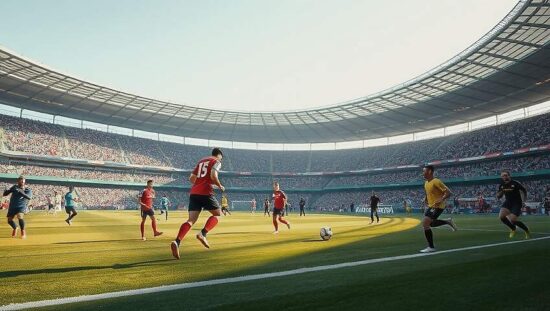The unexpected defeat of SV Elversberg against Arminia Bielefeld on Saturday has triggered a significant shift in the 2. Bundesliga standings, raising questions about the sustainability of Elversberg’s early season dominance. While the Saarlanders maintained possession throughout the match, their failure to translate that control into tangible attacking threat proved decisive. Bielefeld, demonstrating tactical pragmatism, exploited Elversberg’s vulnerabilities with swift counter-attacks, ultimately securing a 2-0 victory through goals from Joel Grodowski and an unfortunate own goal by Florian Le Joncour.
The loss represents more than just a single setback for Elversberg; it cedes the league lead to the resurgent FC Schalke 04, who secured a win against Darmstadt the previous evening. The sudden loss of top spot fuels the debate surrounding Elversberg’s relatively new place amongst the league’s competitive elite. While their initial success was often lauded as a fairytale, the Bielefeld match exposed potential cracks in their approach, raising questions about their ability to maintain this level of performance against increasingly savvy opponents.
Adding to Elversberg’s woes, SC Paderborn also leapfrogged them in the table, triumphing over Dynamo Dresden in a closely contested 2-1 encounter. This concurrent success further underscores the growing competition within the league. The Dresden match saw a dramatic turnaround, with Dynamo initially leading through a penalty before a late shift in momentum allowed Paderborn to claim victory, demonstrating the unpredictable nature of the 2. Bundesliga.
Elsewhere, a 1-1 draw between Holstein Kiel and VfL Bochum saw goals from Francis Onyeka and Louis Köster respectively. This result, while less impactful on the overall standings, contributes to the narrative of a league where no team is currently demonstrating undisputed superiority and where tactical flexibility and adaptability are proving essential for success. The loss for Elversberg underscores that the league’s early predictions were premature and that continued success will demand more than just possession.





